
Yesterday’s blog post posed the difficult and uncomfortable question for radio broadcasters:
Is radio losing the battle of the ear to podcasts, streams, smart speakers, satellite radio, and now, social audio platforms like Clubhouse?
My conclusion was that while most broadcasters have a heavy lift competing against the big boys and girls in these spaces – Amazon, Apple, SiriusXM, Spotify, and so many others – there is a strong, enviable position radio broadcasters can still win:
Live & local
Many of you agreed with the premise, at least, but questioned whether, in fact, radio has walked away from its homegrown roots.
Scott was not alone in his skepticism about radio’s lost opportunity in the live and local space. Many stations and their parent companies talk the talk, but fail to deliver on the promise. After all, there is no low hanging fruit on the path of least resistance.
But a number of people concurred with my take that for certain broadcasters in the right town with a strong brand, there continues to be a track record of positive performance.
This suggests it is never too late to double-down on your hometown.
And when you look at any given ratings book in most diary or PPM markets, chances are the station(s) sitting at or near the top of the heap are still filling that live & local position that has served radio so well for so long.
But conventional wisdom in radio has taken a decidedly different course in recent years. The “hubbing” of talent, music, and production has become popular and common, thanks in no small part to its economy of scale, ease of execution, and promise to ensure stations sound consistent whether they’re in Abilene or Ann Arbor. The “degree of difficulty” of a plug-and-play format or voicetracked personalities is tantalizing for many broadcasters. Low health insurance costs, fewer aircheck sessions, and virtually no talent blowups at client remotes. In other words, easy peasy.
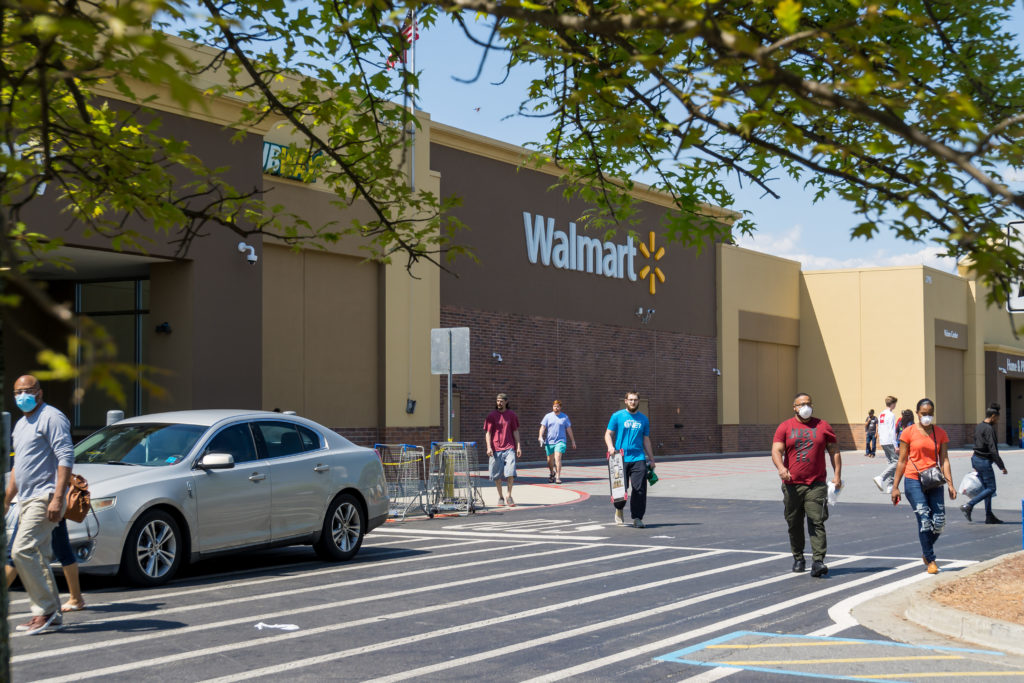
But then 2020 happened. We are still experiencing the biggest reset of our lifetimes – and it’s not over yet. But the reckoning has been very real. A global pandemic forced us to reassess and recalibrate everything. It compelled us to check our “because we’ve always done it this way” mindset at the door.
The mantra became wear a mask, wash your hands, and socially distance. Who could have imagined in 2019 that our lives would be turned upside down by a virus?
And even though COVID is a worldwide scourge that has impacted every corner of our planet, we have learned that our lives are very locally dependent.
Think about the pandemic’s trajectory these past 13 months. In what states – or towns – are we seeing hot spots? How are community hospitals coping with the volume of truly sick people? Does that grocery store in our nearby strip mall have any toilet paper on the shelves? When will the schools open here? Where do I vote? How do I support my favorite restaurant? Where can I get the vaccine?
These are intensely local questions.
It doesn’t matter that your friend in Tampa got the vaccine and she’s younger than you. Or the mask mandate has been lifted in Corpus Christi. Or all the gyms in New York state are still closed.
We are all conditioned to truly care about is what is happening HERE. In our cities, our towns, our communities, and our neighborhoods.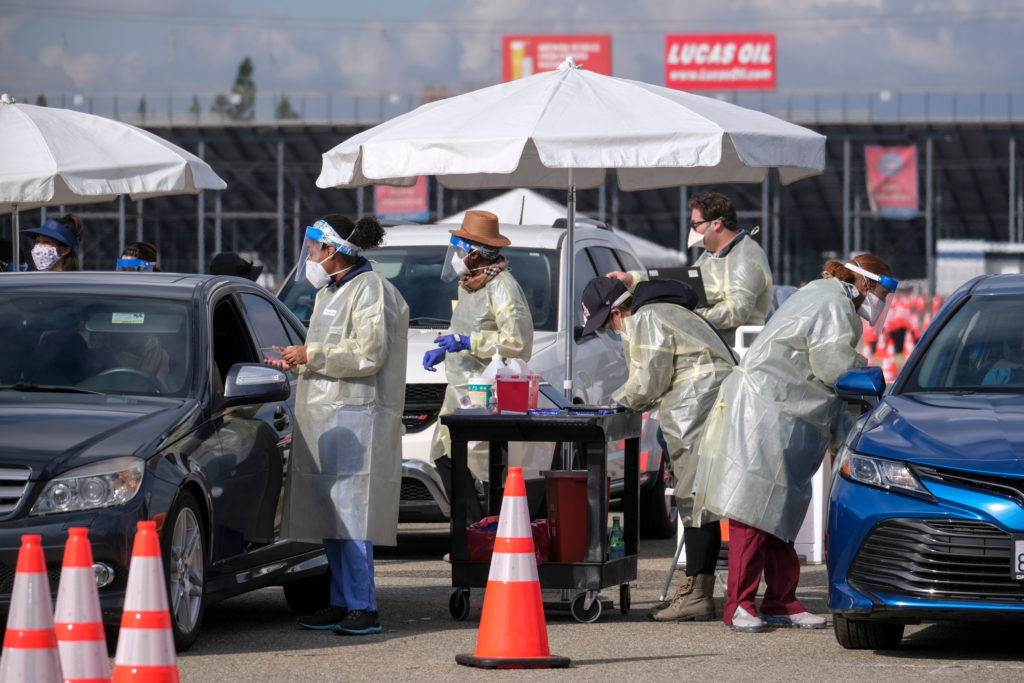
And truly prescient radio broadcasters have been embracing the local zeitgeist from the day we first met Dr. Fauci and learned terms like “community spread,” “personal protective equipment,” and “flattening the curve.”
It is never too late to double-down on your hometown.
If you doubt these assumptions, I’d invite you to pull up a chair and listen to 42,200+ radio fans who weighed in earlier this year for Techsurvey 2021.
We have been tracking a number of bellwether agree/disagree questions over the years, but this one is a favorite:
“One of radio’s primary advantages is its local feel.”
In recent years, we’ve watched the strong degree of agreement incrementally uptick. But then came 2020, and now a near majority are in lock-step concurrence with this idea:
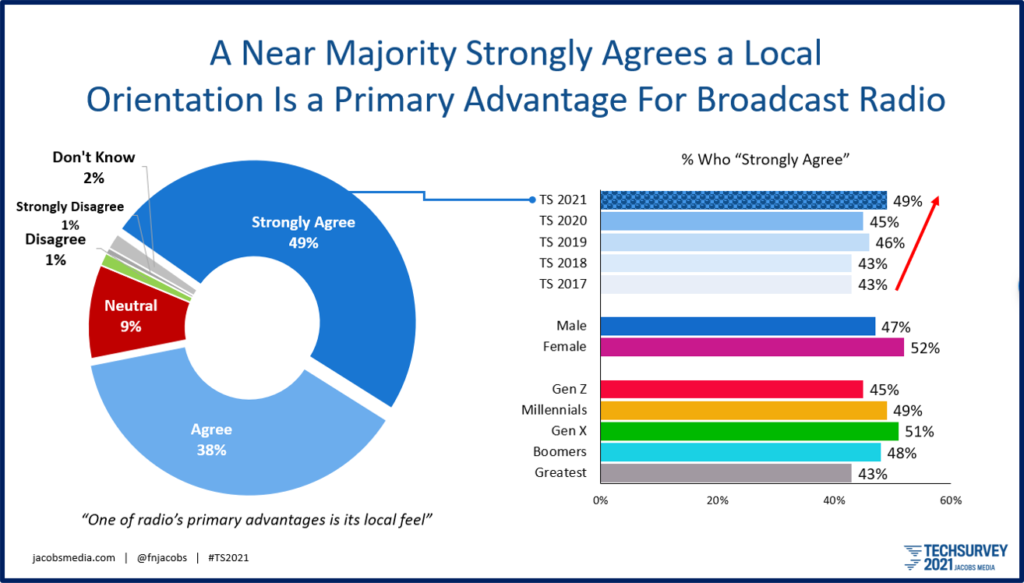
Men and women are on the same page. So are Millennials and Baby Boomers.
And here’s a fun fact – the various political factions can actually agree on something. A majority of Democrats and Republicans (52%/50% respectively) strongly agree with the value of radio’s local commitment.
Coincidence? I think not.
We’ve witnessed a sense of hometown spirit and pride many of us simply overlooked. And while “we’re all in this together” did not turn out to be a consistent truth due to our political divisions, the vast majority recognized the contributions of essential workers and others who did their part to keep the lights on, stores open, and hospitals functioning.
We’re seeing positive signs in markets all over the country. Mid-West Family’s “Town Crier Wire” platform (website + app) is a great case in point. In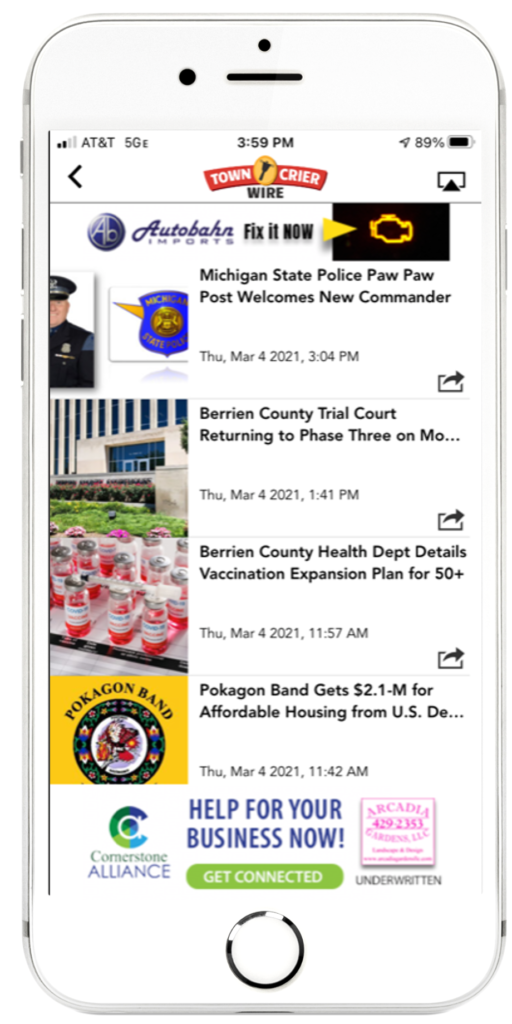 their Southwest Michigan region, market manager Dave Doetsch recognized that the absence of local newspapers and television presented an opportunity for a radio broadcasting entity to fill this void. People crave news, information, tips, and even gossip from their zip and area codes.
their Southwest Michigan region, market manager Dave Doetsch recognized that the absence of local newspapers and television presented an opportunity for a radio broadcasting entity to fill this void. People crave news, information, tips, and even gossip from their zip and area codes.
Soon, local venues, theaters, bars, clubs, arenas, restaurants will be open for business. How they perform, how they’re welcomed back, how locals learn the facts are all part of the narrative citizens expect from local radio.
It is never too late to double-down on your hometown.
Stations that provide that local flavor – in the form of features, apps, website info, talk show guests and other outlets – is the content that will separate hometown radio stations from SiriusXM’s ’70s on 7, the “Joe Rogan Experience” on Spotify, endless conversations about “How To Make 5 Figures Every Month On Clubhouse,” and other media distractions that add to the noise.
Our jacapps division has developed a “TownConnect” app that works for local stations and clusters. 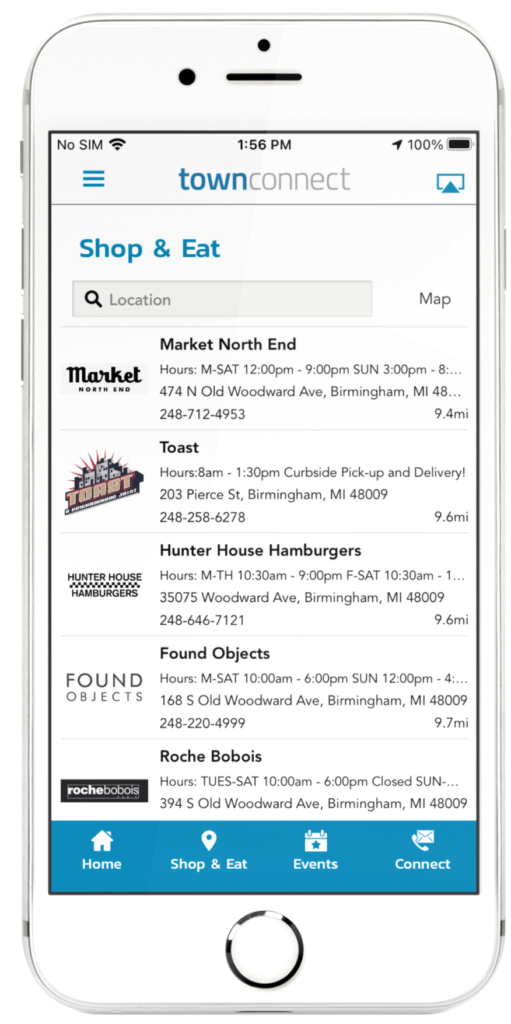 Originally designed for the December holiday shopping season, the platform provides a great solution that melds radio, retail, and restaurants in hometowns of all shapes and sizes and is included in any station’s app as an added feature.
Originally designed for the December holiday shopping season, the platform provides a great solution that melds radio, retail, and restaurants in hometowns of all shapes and sizes and is included in any station’s app as an added feature.
The planets are lining up for a “live & local” strategy, and broadcast radio is the medium in the best position to take advantage of the opportunities.
2020 was the Year of COVID, and I’m excited to share our top-line results and insights from our new Techsurvey with attendees at the AllAccess Audio Summit that takes place virtually later this month. Like the above chart, we can now see the effects of the pandemic on broadcast radio. But we can also see the way forward.
All signs in 2021 point to the potential for radio broadcasters to have a bounce-back year. After all, beating 2020 Q2 numbers shouldn’t be hard. But stations that lean into this “live & local” moment have the potential to not just generate revenue, but to build brand equity and value for audiences and advertisers.
 It will be a year when radio can help its hometown businesses get back on their collective feet. And the good news is that embracing your community is a tactic that any station in any market call pull off.
It will be a year when radio can help its hometown businesses get back on their collective feet. And the good news is that embracing your community is a tactic that any station in any market call pull off.
Assuming of course, you get the green light to do so.
Is it too late to double-down on your hometown?
It’s never too late to do great radio that serves your community.
Info on the AllAccess Radio Summit here.
- What To Do If Your Radio Station Goes Through A Midlife Crisis - April 25, 2025
- A 2020 Lesson?It Could All Be Gone In A Flash - April 24, 2025
- How AI Can Give Radio Personalities More…PERSONALITY - April 23, 2025





Will you stop comparing big corporate radio with local mom and pop radio. I’m friends with several smaller broadcasters and all of us are killing it when it comes to keeping our programming relevant to our communities. The bigger broadcasters have abdicated their local responsibilites.
Even when voice tracking some shifts, we are still out there killing it. If you really want to know what’s going on in radio, get from behind your desk and visit with some of the smaller broadcasters. You’ll see that outside the larger markets, local radio is very much alive.
Carter, Carter, Carter…
I’m not sure where to begin. First, thanks for engaging on the topic and congrats to you and your team.
As for me, in a non-COVID year, I am out from “behind my desk,” on the road 40+ weeks a year. And it’s not just LA and Chicago – in 2019, I visited many small markets and regularly speak at state broadcaster association conferences where the majority of attendees are independent, mom & pop broadcasters.
Are smaller companies in small markets doing a better job than “the bigs” in Top 25 markets. In general, I would say “yes.” But market size and company holdings don’t determine a commitment (or lack thereof) to a live and local strategy – ownership and local management do.
I respect your opinion and thank you for commenting.
” I am out from “behind my desk,” on the road 40+ weeks a year.”
Evidently you are not because you appear clueless what us small market operators are doing.
“….market size and company holdings don’t determine a commitment (or lack thereof) to a live and local strategy – ownership and local management do.”
And if you were really on the road 40+ weeks a year and talking to smaller operators, you’d find that ownership and local management in those markets have a vested interest in their stations doing well. Unlike ownership located in New York or San Antonio. That translates the smaller owners and operators being in their markets and doing that the need to in order to serve their listeners the radio should be.
But you already know that. Right?
Carter, you’re entitled to your opinion. Thanks for the response.
Excellent blog Fred! With the demise of local papers and TV cutting staff, we are aggressively following the local, local, local mantra as
Your Source for News and Information in the Great Lakes Bay Region,
100.5 & 790 Newsradio WSGW. Our 4 person news team works hard to fulfill that commitment including last year when we had a 500 year flood in addition to the Campaign and Covid impact locally!
Congrats to you, the staff, and ownership. Those call letters are synonymous with your region. It doesn’t happen by accident. And when there’s an emergency, stations like yours shine.
I used to think the only people who complained about voice tracking were out of work jocks. I was terribly wrong. My wife enjoyed listened to Audacy’s alternative station. Then she stopped. She said one day all the local talent was gone and replaced by unfamiliar voices. And the music seemed to have changed. So now she listens to KINK, which is real local. But to be fair to Audacy, they did pretty much the same thing to KGON, and I gotta tellya, as a KGON alum, the station sounds great. Goes to show, voice tracking can work, but your voice trackers have to work at it. AND the music still has to be right.
Pete, there’s an art to making voicetracking sound real, live, local. I actually remember a respondent in a KGON focus group many years ago tell me she didn’t like to listen to the station “when there’s no one there.”
As several commenters here and on my social pages have commented, live & local isn’t just how you sound when you crack the mic – it’s the station’s mission and orientation. You’re either in the moment in the local market – or you’re not.
Remember when jocks would get called on the carpet for saying something like “it’s hot out there” (implying that they were not actually with/a part of the listeners experience). [thanks lee] Unless you really worked at it, sounding like you actually ‘knew’ the city where the stick was took a lot of work, experience and smarts. Now make that work in a couple or six or a dozen markets a thousand miles away. Good luck, we’re all counting on you.
John, you are right that it’s not easy to do this well and sound authentic. Greg Solk used to advice the airstaff putting themselves in the listeners’ shoes – where are they, what’s going on, what might they be thinking about, how would they like to feel when they listen to the station? Yes, it can be done for one market – not a handful.
Peter,
Are you telling me that in a market as large as Portland, they voice track the classic rock station? I guess I’ve just been out of the game too long. I am just stunned.
(They have for years.)
I’m always skeptical about what people say in surveys, especially when they proclaim their reverence for “local”.
Everyone wants to “shop local” but how come Walmart and Amazon own the world? I know, their reverence for all things “local” doesn’t mean they will pay $1.12 extra on a $56 item or get off their recliner and go to the store.
That being said, a good local personality will beat a good national personality every time.
My concern is we aren’t turning out any good local personalities by having them voicetrack once a week. And that was pre-pandemic before we cut even those hours.
There are no overnights and live six hour shifts on weekends anymore for them to hone their chops so the newest crop of potential stars aren’t getting enough mic time.
Radio got rid of our Minor Leagues long ago and now we have no bench.
I can blame it on the big companies but like the gutting of factory jobs in this country, automation has the most to do with it. I doubt if even the sainted individual owners would continue having a full time person from 12am to 6am if they didn’t have to.
But I will blame the big companies for the race to the bottom in the willingness to “grab share” which has caused Radio’s CPP to plummet in every market and Iheart’s’ “Less is More” fiasco which taught everyone to buy us for 30% less (if we are lucky) and spend the rest of the money elsewhere.
Because if we had the money, we wouldn’t have a problem.
Mike, you’ve made some strong comments and assertions here. And you won’t get pushback from me. I feel the same affinity to personality radio. It has always been – and will always be – the secret sauce. Especially give the glut of audio choices, an entertaining, trusted, authentic, funny, relatable personality is gold. Yes, they cost more money than hiring a “mechanic,” and they’ll break your heart when they walk across the street or say something horrible that offends clients and listeners both. That’s the price you pay for talent. It’s what makes radio, and the fact we no longer have those AAA and AA clubs or sandboxes like overnights and weekends is just a shame.
“Radio got rid of our Minor Leagues long ago and now we have no bench.”
This, right here. I’ve got students who WANT to become a part of radio, and there’s no place for them to expand on the skills they learn in college. The overnight shift where I made dozens of mistakes is gone, so we put new talent in prime time and hope they don’t read the comment sections.
Len, it’s a major gap and a missed opportunity for broadcasters, students, and educators alike. Thanks for the comment.
Kudos and congrats to the small market operators who have embraced the value of being local and filled the void left by disappearing news departments at local newspapers and TV stations. Not that long ago, small market stations used to brag that they sounded like big market ones – I think those tables have turned, although most of the big companies don’t seem to know it.
Radio seems to be committed to a run out the clock strategy. Their research shows them that people value live and local above all else and the industry keeps moving away from it at an accelerating rate – hmmm, what is likely to happen? A year ago, when I predicted that most of radio would become centralized, you called me out for being dystopian. It didn’t take long for (apologies to the Doobies) for vices to become habits.
Someone has to say this – since consolidation, the worst people have ended up in charge. They’ve stripped mined an industry that would have been seriously challenged under the best of circumstances. But they never even gave it any kind of real effort and instead, created something pretty close to a worst case scenario. How many people running the major radio companies have ever even worked at a radio station?
I feel really sorry for the dwindling number of people still employed in radio, but its head honchos have behaved like abusive parents, so its hard not to root against them. My mother used to love that old saying, “had the horse down to one grain of oats and then the damned thing died.” To radio’s head honchos: May all of your shares become worthless – maybe then someone can buy radio groups for pennies on the dollar and make a serious attempt at reviving a once great medium and industry.
Bob, as always, caustic, cutting, and brutally frank comments that make me happy you still read this blog. Thanks for keeping things interesting.
Broadcast Audio, as it should be known, should be dedicated to serving it’s city of license or something appropriate to the geography of the urban contour with live and in touch content. . . and here’s the hard part….good talent. My market is just a few ticks down from PPM land and the difference in the quality of talent is astonishing. In an age where you can listen and learn from all talent everywhere on the planet why is local talent in so many markets so ….uh… modest…if you get my drift? How do we go about raising up the talent? They all seem to think the skills to appeal to a general audience, not including your classmates, are unnecessary.
Lalo, spot on, as usual. If you don’t set your sights on cultivating, training, and nurturing talent, you get what you get.
I typically attend Morning Show Boot Camp when it actually happens, and I can tell you there are lots of young and talented hosts trying to build on their craft. Many are there on their own dime.
My opinion – most radio companies don’t put anywhere near the priority on talent as they should, crazy as that sounds. It’s regrettable, and makes you wonder about where will be when today’s seniors hang up their headphones.
“Had the horse down to one grain of oats…”
Well, if we weren’t beating the damn thing, it might be able to survive on one grain of oats, for a day or two anyway.
Radio would make a great case study/doctoral thesis. It would be interesting to try and figure out how virtually every deal (of the two companies) left the lest capable, least creative and most likely to fail exec in charge. It would also be interesting to learn why they didn’t see any future in anything but cost cutting – that somehow the 1993 car would still generate more profit than the 2021 ones as long as they could sell them cheap enough.
I don’t know of one sector that has every applied that strategy successfully. I’d love to know why those in charge thought it would work for radio and why they did virtually no beta testing of anything.
Bob,
I always liked this quote from Steve Jobs on why tech firms fail. And no, I don’t hate sales. But as Jobs’ points out, as the product becomes less important and moving the needle every quarter for the board and stockholder, you eventually end up at the place Jobs warns about.
“I have my own theory about why the decline happens at companies like IBM or Microsoft. The company does a great job, innovates and becomes a monopoly or close to it in some field, and then the quality of the product becomes less important. The product starts valuing the great salesmen, because they’re the ones who can move the needle on revenues, not the product engineers and designers. So the salespeople end up running the company.”
Live is as big a deal as local to me. It moves radio from being background muzak into an engaged companion.
Radio is going the way of newspapers. End of story.
We’re a few hundred yards up the beach from newpapers. But we still have to get out of the way of that tidal wave. (At least, that’s the hope.)
Fantastic read, all on point with what we need to do and what we have been doing at JVC for years. Become a friend to the listener, and you can’t do that in a 8 second talk break! Thanks for keeping it all together for us.
John
Appreciate you reading it and commenting, John.
The (frequently) number one station in Chicago (market #3) now uses syndicated bird feed to program it’s evenings. And iHeart will argue that the ratings are just fine. What a stupid and short-sighted approach. The formerly local jock took calls and referenced local issues important to the listeners. Now they get Keith Swett in that spot, airing canned relationship calls from Waco, Birmingham or wherever. This is progress?
No, this is how radio slowly kills itself.
I usually encounter two extreme points of view on this topic. With regard to music formatted stations, I think a majority of PDs think music is the only consideration. Well, maybe 40 years ago, but today you can get music without commercials or DJs anywhere. It’s free with Amazon Prime, for example. Promo lines like “More Music, Less Talk,” tell us talk is bad, so why have DJs at all? Now, the alternative view comes from radio listeners who say, “Give me something I can’t get streaming a NYC station — give me local. Tell me what’s going on in my town!” This is a major new revenue stream, folks! Forget those 60 second spots. Sell advertorial interviews with the DJ during the breaks between songs. Food, healthcare, DYI home improvement, beauty, travel, personal finance…. And, yes, those can all be voice tracked. I’d rather be paid $150 for a one hour voice track session than have sit in a studio for 6 hours at $40/hour. By the way, you’re going to attract thousands of new listeners to your station because each new guest is going to tell 40 of their friends to tune in. News-talk is a different story. Straight news gathering is too expensive for anything outside of major markets, but you can generate local news if you take the advertorial model. Talk radio, which is primarily an AM radio thing these days, is an appropriate use of syndication — although I would prefer news-you-can-use formats like personal finance, legal, psychology and consumer news.
These are great points, Ken. Every time I write a post around the “local” concept, the topic touches off myriad opinions about exactly what it is. Like the old Supreme Court definition of pornography, I believe listeners know it when they hear it.